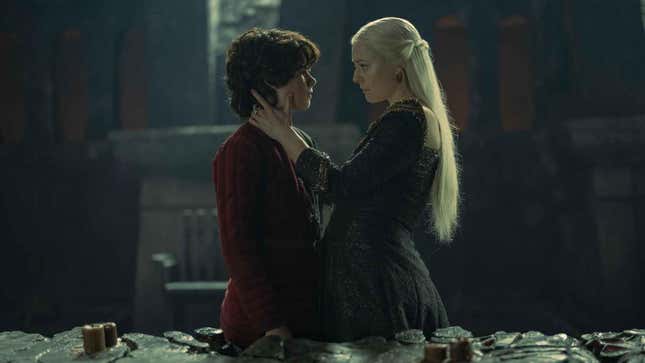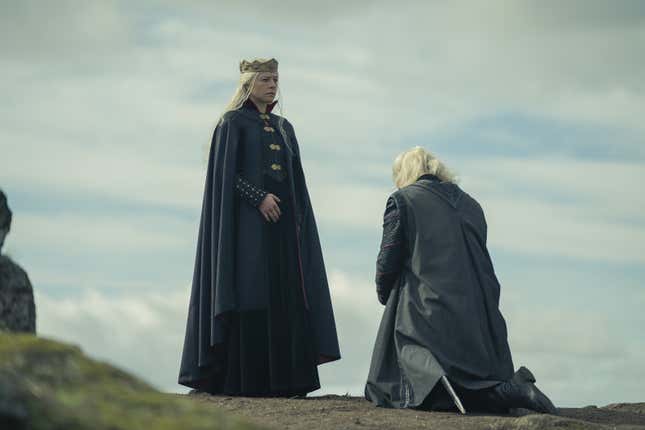In ‘House of the Dragon’ Episode 10, Women Just Refuse to Be War Criminals for Some Reason
Alicent, Rhaenys, and Rhaenyra hold all the power in the realm. Is it patronizing or empowering that they're the only ones with the good sense to avoid war?
EntertainmentTV

I hate to be the bearer of bad news, but we’re going to have to find something else to fill the void on Sunday nights from 9 to 10 p.m. ET next week. The season finale of House of the Dragon is probably the last we’re going to see of the show for about two years, and the wait is going to be especially agonizing given the tragic and enraging note it ended on.
We begin where we left off last week, as the Hightowers usurp the throne from Rhaenyra and crown her rapist half-brother—who doesn’t even want to rule!—king. Rhaenyra’s shock and rage at this development spiral out into a series of personal tragedies for her, starting with what appears to be a hellish stillbirth. (I get that they wanted to personalize Rhaenyra’s loss as much as possible, but did the production team really need to subject us to images as graphic as the posters anti-abortion protesters wield outside clinics??) Shortly afterward, even as Rhaenyra and her allies get their ducks in a row—including strategizing with the reanimated Corlys Velaryon to execute a lethal blockade on King’s Landing—the greatest tragedy is delivered at the end of the episode: Rhaenyra’s son Luke is killed in a freak “accident” by Alicent’s son Aemond.
The killing of Rhaenyra’s son, which she learns about in the episode’s final moments, will change everything. Throughout the episode, despite seemingly everything being taken from her, Rhaenyra refuses the advice of Daemon and other men urging her to go to war. After all, where it arguably counts the most, her side has the upper hand, with significantly more dragons than Alicent and co. Yet Rhaenyra remembers Viserys’s warning that dragons going to war with dragons would inevitably destroy the realm, which she’s determined to guard and protect rather than destroy for personal ambition. (She is, after all, the only living person to know the song of ice and fire—the prophecy that a great evil will strike from the north, and it’s the Targaryens’ duty to protect the realm.)
-

-

-

-

-

-

-

-

-

-

-

-

-

-

-

-

-

-

-

-

-

-

-

-

-

-

-

-

-

-

-

-

-

-

-

-

-

-

-

-









































